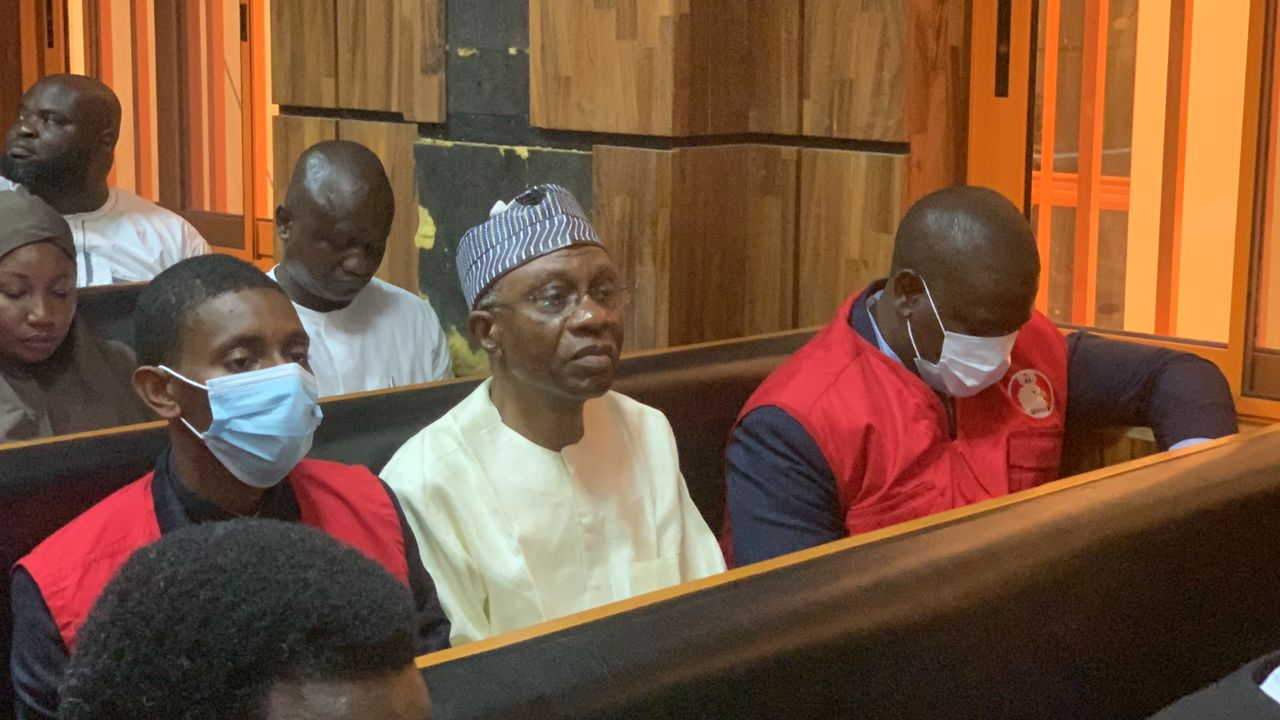…Says Security Agencies Strengthened To Meet Challenges
President Bola Tinubu on Monday asked the National Assembly to dig into the Tax Reform Bills he submitted to it in 2024, and produce working tax laws.
The president’s request comes as both chambers began a two-day retreat aimed at fine-tuning grey areas in the legislation.
Conveying the president’s request to the gathering of stakeholders at the National Assembly, Chairman of the Senate Committee on Finance, Senator Sani Musa (Niger North), said, “I met President Bola Ahmed Tinubu (GCFR) two days ago on the tax reform bills and he told me that Mr. Chairman, Senate Committee on Finance, go and do the needful.
“Give me a law that is workable from the tax reform bills I forwarded to the Senate and the House of Representatives in October last year.
“That request by Mr. President came at a very auspicious time of this public hearing on the tax reform bills which are not meant to add burden to any section of the country or give undue advantage to any section as well.”
President Tinubu’s request for workable laws from the bills, which are (i) The Nigeria Tax Bill 2024, (ii) Nigerian Tax Administration Bill 2024, (iii) Nigeria Revenue Service Establishment Bill 2024 and (iv) Joint Revenue Board Bill 2024, was disclosed by the Chairman of the Senate Committee on Finance, Senator Sani Musa (Niger East) in his remarks at the public hearing.
At the hearing, stakeholders supported the legislation with the Arewa Think Tank led by the convener, Muhammad Alhaji Yakubu, debunking insinuation that the Northern part of the country was against the proposed laws.
It would be recalled that strident oppositions against the bills were raised by various groups last year which made it difficult for the House of Representatives to pass it for second reading while the Senate managed to do so on November 28, last year.
However, at the public hearing declared open by the President of the Senate, Senator Godswill Akpabio, all oppositions against the bills melted out as stakeholders one after the other threw their weights behind the proposed laws.
First to make submission was the Minister of Finance and Coordinating Minister of the Economy, Mr. Wale Edun, who said the proposed laws are not aimed at taxing poverty but prosperity.
“The tax reform bills as repeatedly explained at different fora since their introduction last year are for modernisation of our archaic tax laws towards affecting efficiency, equity and economic growth,” he said.
Making a similar submission, the Group Chief Executive Officer (GCEO) of the Nigerian National Petroleum Company Limited (NNPCL), Mele Kyari, said the entire oil and gas industry is well disposed to the reform.
“The proposed tax reform bills to us in NNPCL are very necessary enhancement of growth of the economy through more efficient and effective tax collection mechanism.
“As the largest taxpayer in Nigeria, NNPCL has studied the reform bills, and found the proposals to be reasonable and necessary”, he said.
Towing similar lines in his own presentation, the Chairman of Revenue Mobilisation Allocation and Fiscal Commission (RMAFC), Mohammed Shehu, made a U-turn from earlier stance on the bills, by supporting them 100%.
He said: “RMAFC is in support of the proposed tax reform but wants adjustments in the area of Value Added Tax (VAT) distribution to sub-nationals.
“We hope that the proposed reform will address the issue of endless revenue remittance reconciliation with NNPCL and others”.
The Chairman of Fiscal Responsibility Commission, Victor Muruako, also supported the proposed reform bills by declaring that they are in tandem with the spirit and letters of the Fiscal Responsibility Act 2007.
In their separate presentations, the convener of Arewa Think Thank, Muhammad Alhaji Yakubu, and representative of President of Supreme Council for Sharia in Nigeria, Prof. Mohammed Bello Dogarawa, debunked the insinuation that the North was against the reform bills.
Specifically, the Convener of Arewa Think Tank said, “It is not true that the North is against the tax reform bills. We have seen the benefits and sensitised our people in the North on them.”
Earlier in his remarks before declaring the public hearing open, the President of the Senate said: “The challenge before us transcends the simple act of passing new laws; it is about constructing a tax system that inspires confidence, promotes development, and fuels national growth. We cannot afford to be fragmented in our approach to revenue generation. Instead, we must come together—Federal, State, and Local Governments, alongside the private sector and civil society— to create a tax system that truly works for all.”
Other critical stakeholders like the Executive Chairman of the Federal Inland Revenue Service (FIRS), Mr. Zacch Adedeji; the governor of the Central Bank of Nigeria, Yemi Cardoso; the Comptroller-Generals of Nigeria Customs Service and Nigeria Immigration Service will remark at the session today.
We’ve Strengthened Security Agencies To Meet Challenges— Tinubu
Meanwhile, President Bola Tinubu has said that his administration has embarked on strengthening the nation’s security apparatus to enable it effectively tackle the emerging security challenges confronting the country.
The president stated this while declaring open the 5th edition of the Conference and Retreat for Senior Police Officers (CARSPO), held at the H3 Event Centre, Oke-Mosan, Abeokuta, Ogun State.
His administration, President Tinubu affirmed, recognises the importance of security in the socio-economic development of a nation and therefore strengthens its operational capabilities by providing adequate equipment to confront emergencies and effectively combat crime.
The president, who was represented by Vice Kashim Shettima, called on the people to actively collaborate with the police to foster a safer society, adding that policing could not succeed without the cooperation of the people.
He said: “While the Nigeria Police Force is constitutionally empowered to maintain internal security, protect lives and property, and uphold public order, it is essential to recognise that security is a shared responsibility; communities and citizens must actively collaborate with the police to foster a safer society.
“No matter how funded, no matter how well equipped, it cannot succeed without the cooperation of the people it serves. Public engagement and trust are central to the process of inclusive policing.”
The president reaffirmed his administration’s commitment to enhancing the institutional capacity of the Nigeria Police Force by ensuring that it is more effective and well-positioned to fulfill its constitutional mandate as the lead agency in internal security.
Also speaking, the Ogun State governor, Prince Dapo Abiodun, described security as the cornerstone of any thriving environment, adding that a secure society is a place where everyone feels safe and protected.
While adding that inclusive policing is about understanding the unique needs of the people, Governor Abiodun noted that a policing system that actively engages with local communities, upholds human rights, and prioritises transparency is essential in combating crime and ensuring lasting peace.
Earlier in his remarks, the Inspector General of Police, Kayode Egbetokun, noted that as the country continues to confront complex threats like violent crimes, cyber-related offenses, terrorism, and transnational organised crimes, it is important that intelligence-led policing must remain at the core of its operations.




 3 hours ago
24
3 hours ago
24








 English (US) ·
English (US) ·